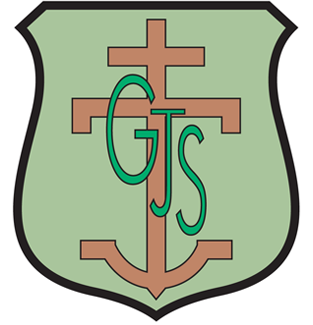Maths Intent
Intent, Implementation and Impact
Mathematics;
The national curriculum for mathematics aims to ensure that all pupils:
- Become fluent in the fundamentals of mathematics, including through varied and frequent practice with increasingly complex problems over time, so that pupils develop conceptual understanding and the ability to recall and apply knowledge rapidly and accurately.
- Reason mathematically by following a line of enquiry, conjecturing relationships and generalisations, and developing an argument, justification or proof using mathematical language
- Can solve problems by applying their mathematics to a variety of routine and nonroutine problems with increasing sophistication, including breaking down problems into a series of simpler steps and persevering in seeking solutions.
Intent
At Greengate Junior School our intent is to provide a fun, high-quality and varied mathematical experience with a rich, balanced and progressive curriculum – embedding the skills outlined in the Mathematics National Curriculum (2014) and Pearsons ‘Power Maths’ scheme of work. Alongside these teachers use other high-quality resources, including Big Maths CLIC and SAFE, and Numicon. The mapping of mathematics across the school shows clear progression in line with age related expectations. This enables us to deliver a foundation for understanding the world, to reason mathematically and develop a positive curiosity for the subject. We recognise that maths is essential to everyday life, as well as being a critical link to Science, technology and engineering, necessary for financial literacy and most forms of employment.
At Greengate we want to ensure that children see maths as a tool for everyday life by creating a range of practical tasks, real life problems and outdoor experiences. The children will enjoy mathematics and experience success in the subject, with the ability to reason mathematically, developing an appreciation for the beauty and power of mathematics. We believe that all children can achieve in maths.

Implementation
To ensure whole school consistency and progression the Maths at Greengate Junior School is taught through the use of the National Curriculum for Mathematics from 2014 and the ‘Power Maths Scheme’. All children will be taught the breadth of the programmes of study, which will be adapted to meet the needs of each child, ensuring pupils make the connections across mathematical ideas and develop fluency. Teaching with high expectations and challenges, ensures all pupils become confident in their knowledge of the programmes of study and progress to the next stage securely.
Children will receive a 50-60 minute lesson every day, including a mental starter that concentrates on the fluency skills. Following this, weekly ‘Learn Its’ and ‘CLIC’ tests will continue and fortnightly ‘SAFE’ challenges will be administered to assess and monitor children’s progress regularly and identify those requiring intervention. SEND children are taught, and supported, within the daily mathematics lesson and are taught at age expectation where possible. Where applicable children’s PSPs incorporate suitable objectives from the NC and teachers keep these in mind when planning for the class.
Mathematical topics are taught in blocks, with ongoing plans produced and evaluated on a week-by-week basis, taking into consideration the needs of the children. Each class teacher is responsible for the mathematics in their class, in consultation with the other colleagues in the year group and the subject leader. All year groups teach in ability focused groups, with most classes supported by an STA - ensuring all abilities are catered for. Teachers use the results from the BM weekly tests, NFER assessments (analysis) and teacher assessment to ensure children are in the correct focus group, which will match their work pace, challenge their ability and stretch their potential. Lessons are planned using a consistent planning format throughout the school and are monitored by the subject leader and head teacher. Plans include a daily starter and main lesson with support and challenge, ensuring all children’s needs (WT, EXP & GD) are met. Teaching is supported by carefully crafted lessons and resources to develop deep conceptual and procedural knowledge. Teachers use careful questioning to draw out children’s reasoning, with all children being offered rich and sophisticated problems and investigative tasks and given the chance to work on ‘greater depth’ questions and challenges. Teachers use manipulatives and representatives to explain ideas and model techniques, these are available in lessons for children to use too. They provide a supportive scaffold for any learner who needs this at any point to achieve success. When children have grasped a concept, they are given opportunities to deepen their understanding through reasoning, problem-solving and investigative challenges.
Assessment at Greengate is ongoing; with low-stake retrieval quizzes and challenges within lessons to reinforce current or recent learning (e,g CLIC & SAFE); summative NFER assessments are completed termly and analysed. Within lessons, adults provide immediate feedback, so children know their successes and next steps. Adults acknowledge written work in exercise books, addressing misconceptions and providing further support or challenge.
Opportunities are given as often as possible to immerse the children in whole school activities and challenges, such as NSPCC Number days, Able Maths days, STEM challenges, Number related theatre groups and workshops.
Impact
The impact of our mathematics curriculum is that the children understand the relevance of what they are learning in relation to real world concepts. We have fostered an environment where ‘maths is fun’ and it is OK to be ‘wrong’ because the journey to finding an answer is important! Greengate has a supportive ethos where children develop their collaborative and independent skills, using this to support each other and recognise each other’s achievements. The regular and ongoing assessments (weekly ‘Learn Its’ and ‘CLIC’ challenges and termly NFER assessments) inform teaching, as well as intervention, to support and enable the success of every child.
Our maths books are packed with a range of activities showing evidence of fluency, reasoning and problem solving. We use ‘Can I’ statements allowing pupil self-assessment and teacher feedback. Misconceptions are dealt with quickly, within the class. Throughout the year the Maths lead will carry out pupil interviews, a book scrutiny of pupils’ individual books and planning scrutiny to ensure the correct delivery of the curriculum and address any areas for improvement.
By the end of Year 6 most children should be fluent in written methods for all four operations, including multiplication and division, and in working with fractions, decimals and percentages. Their understanding of the number system will have been extended and connections made between multiplication and division with fractions, decimals, percentages and ratio. Pupils will also have developed their ability to solve a wider range of problems, including increasingly complex properties of numbers and arithmetic, geometry, measures and statistics. We hope to have built confidence, resilience and a passion for maths, showing that maths is an exciting adventure that everyone can enjoy!
